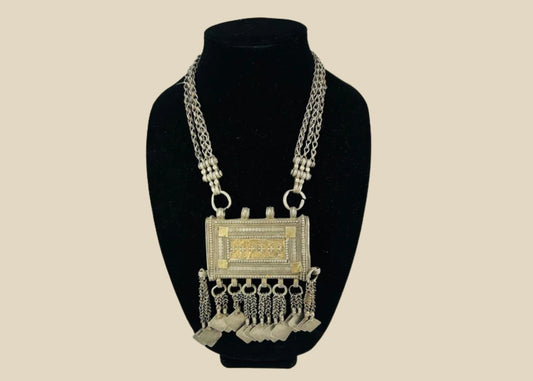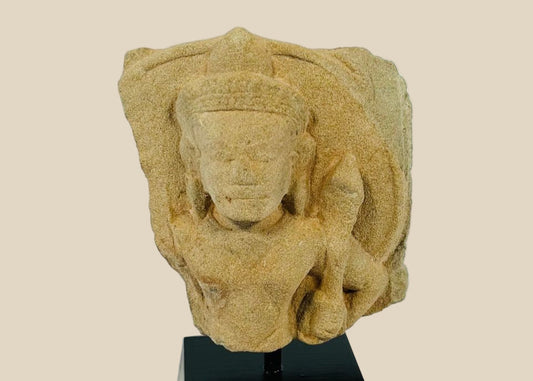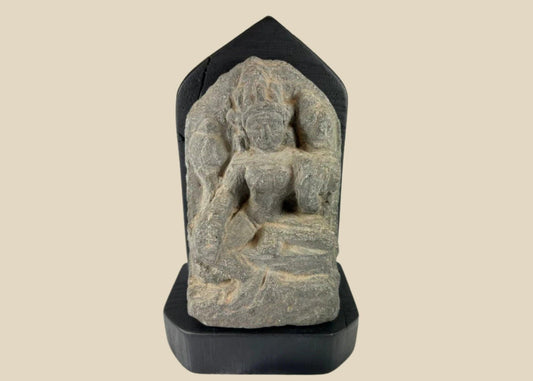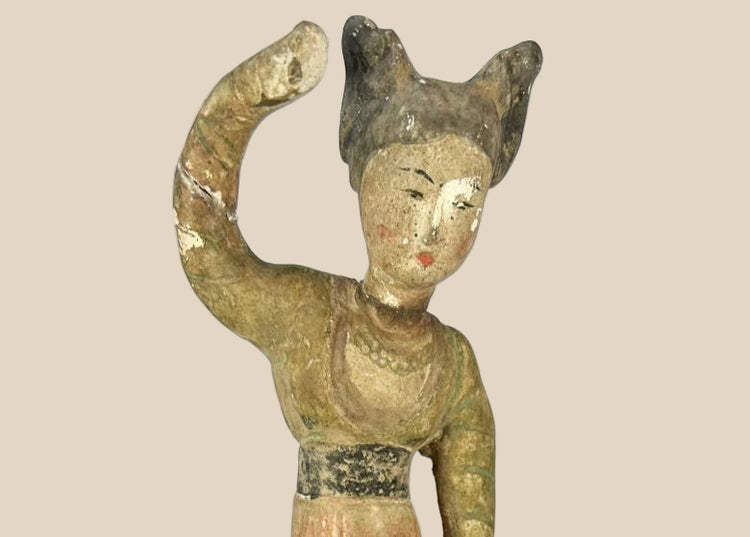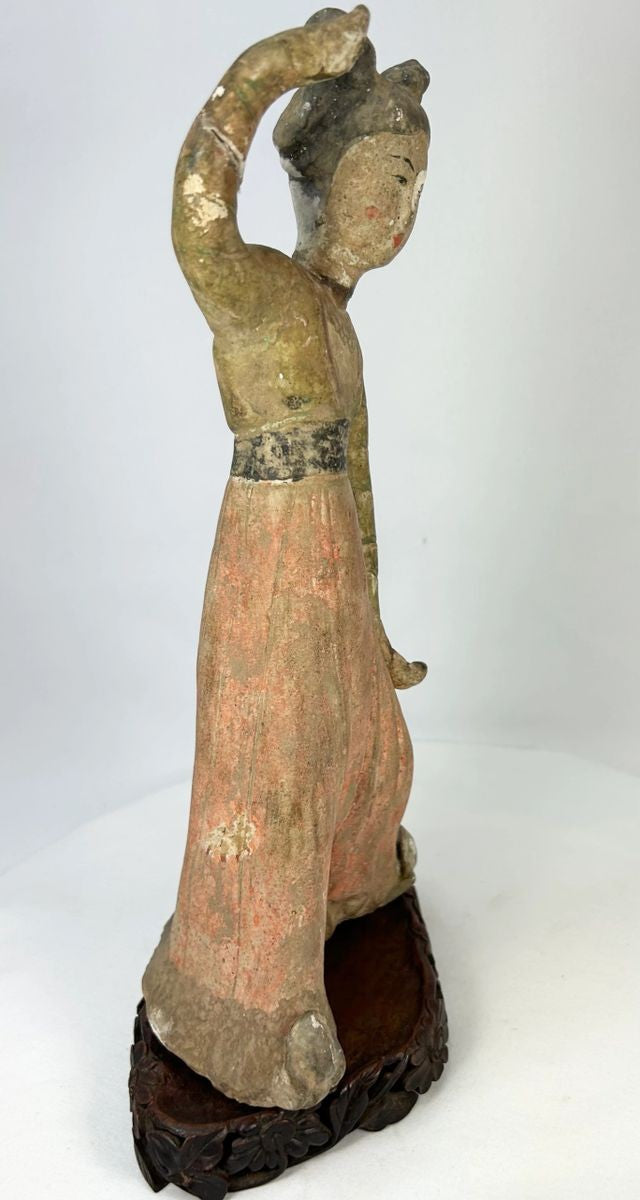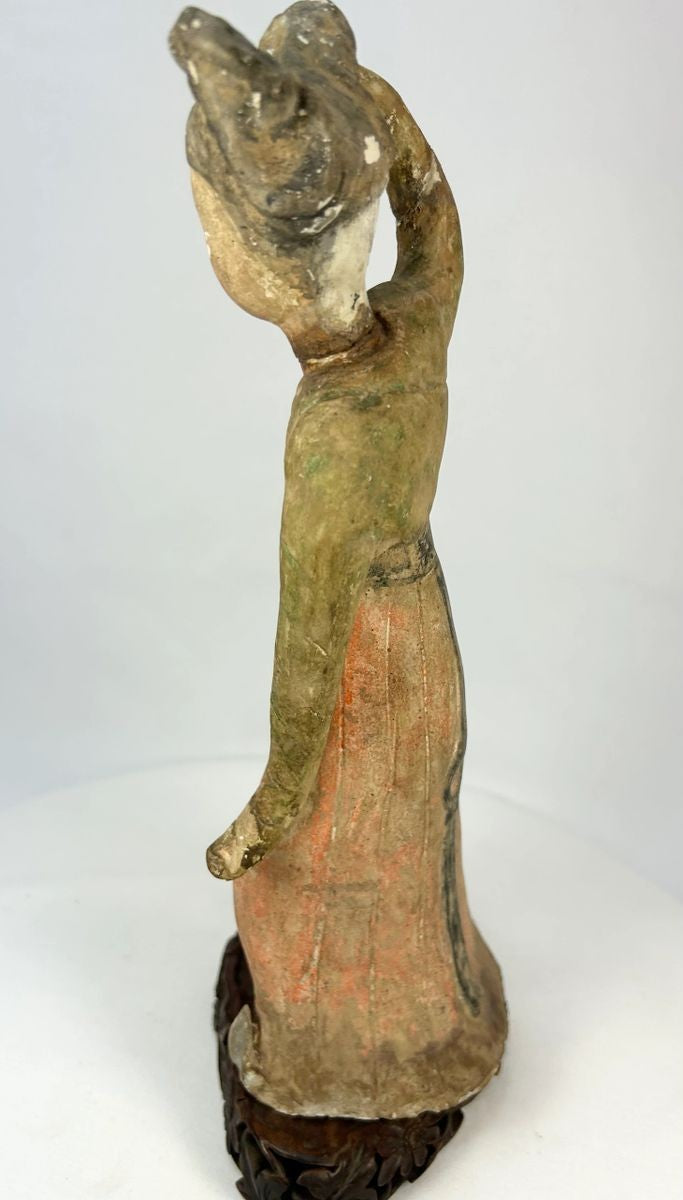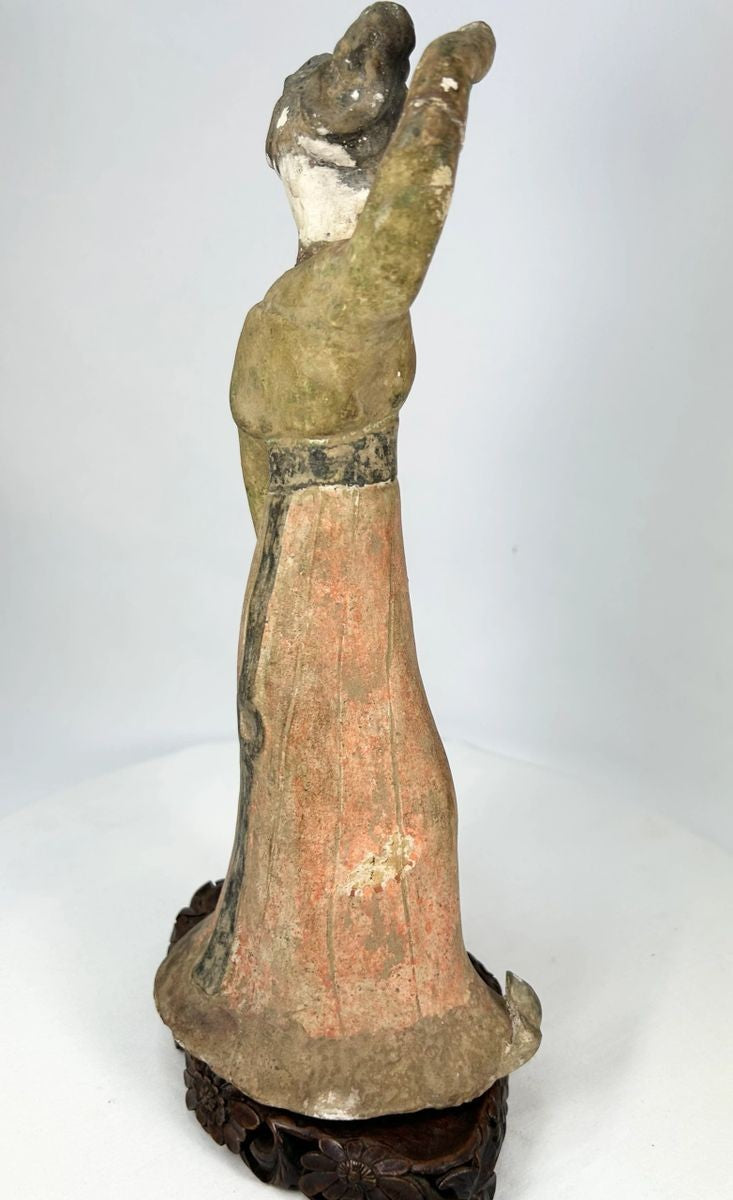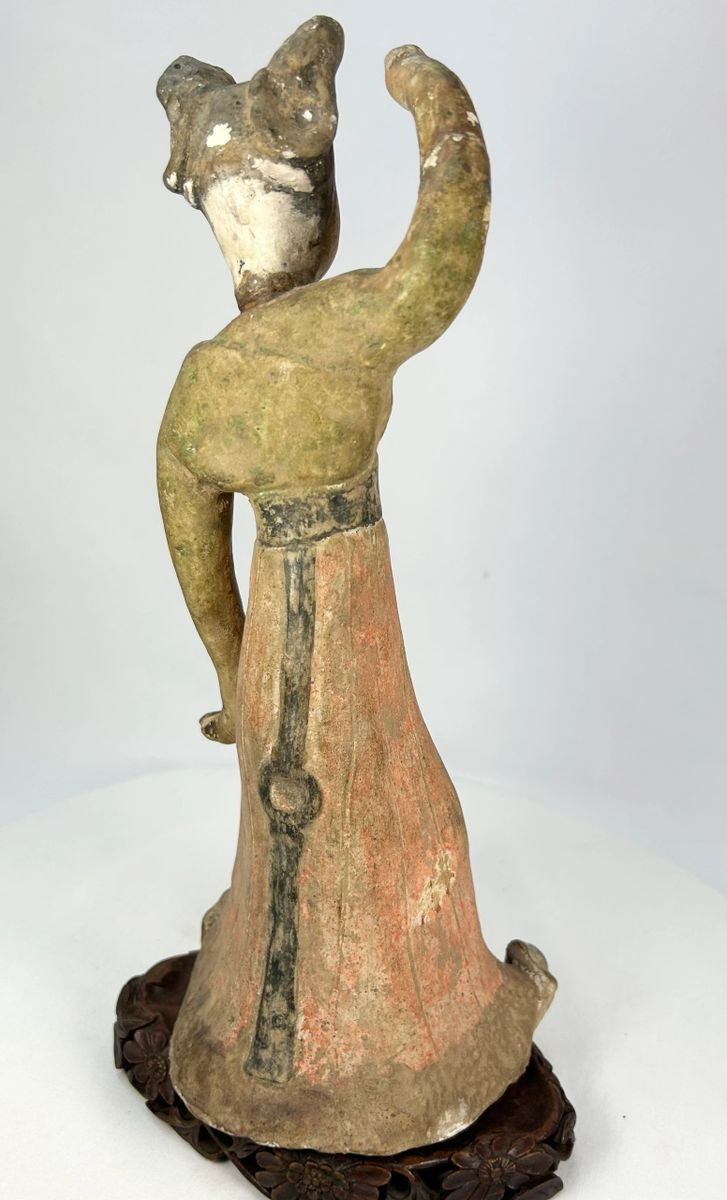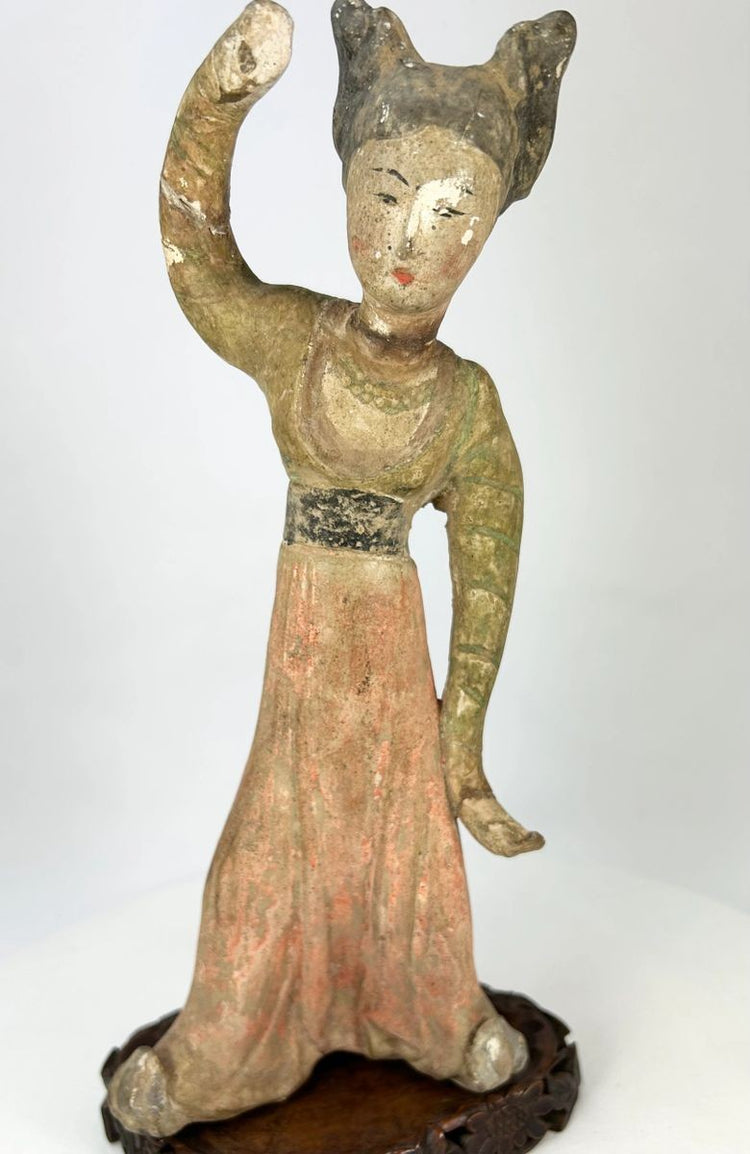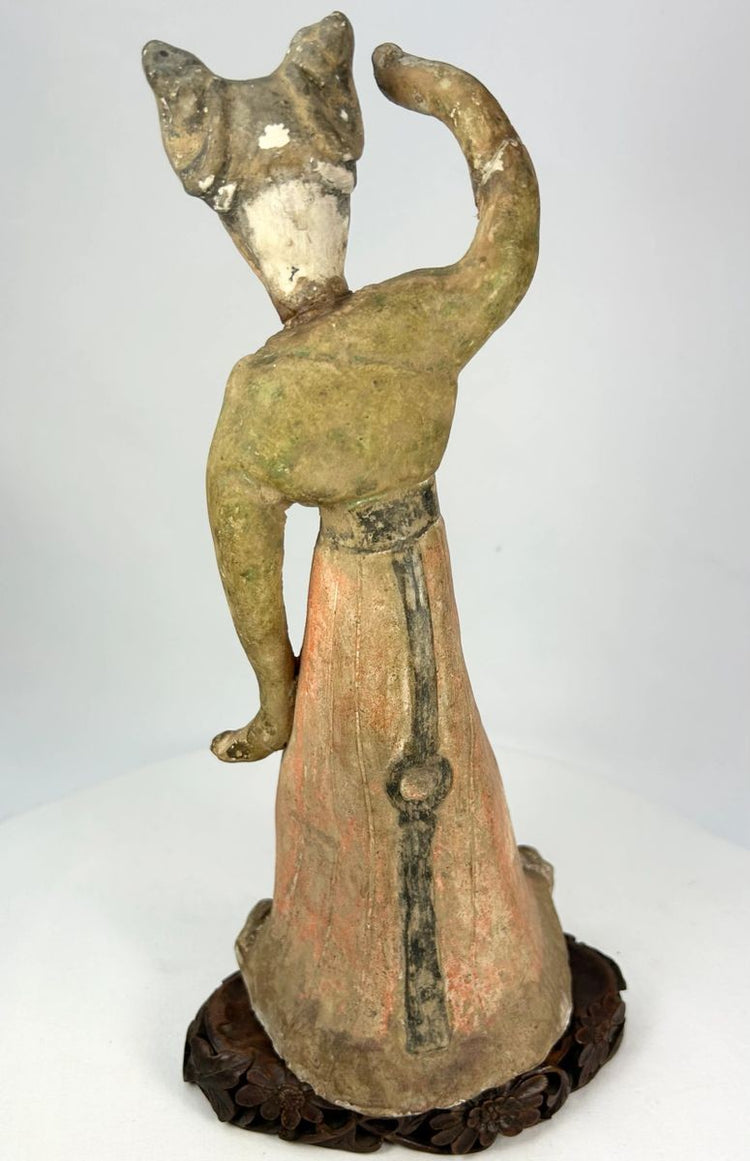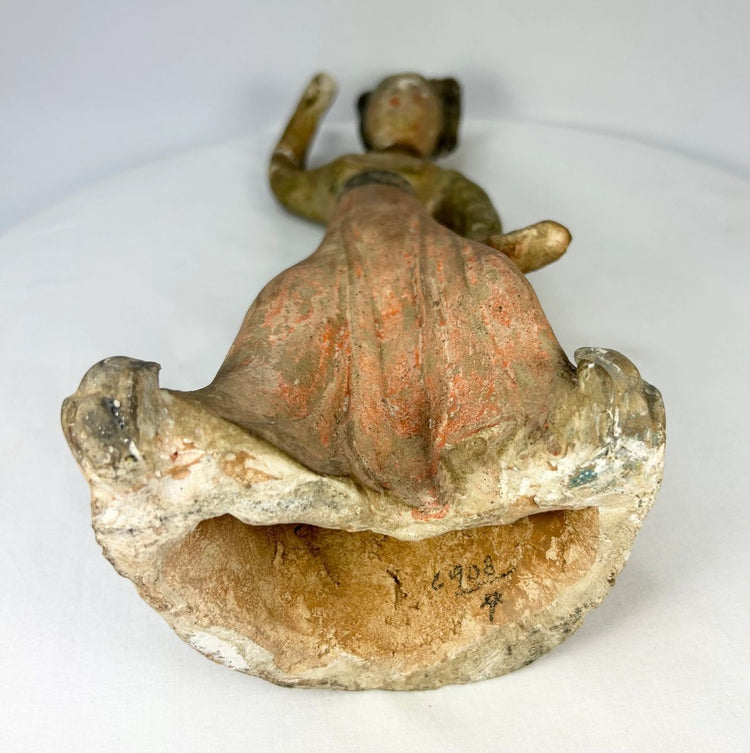Ancient Chinese | Terracotta Dancing Court Lady | 7th–10th Century CE
Description
More
Less
Historical Context & Origin
Region: China
Material: Low-fired terracotta with traces of original mineral pigments
Period: Tang Dynasty, circa 618–907 CE
Description
This elegant terracotta figurine depicts a female dancer from the Tang Dynasty, one of China’s most celebrated cultural eras. Captured mid-performance, she raises one arm in a graceful arc while her long robes flare at the hem, suggesting rhythmic movement. Her hair is styled in the twin-knot chignon associated with noble women of the Tang court. Traces of original red-orange and black mineral pigments remain visible on the robe, belt, and facial features, enhancing her expressive presence. The underside is hollow with an unfinished break typical of kiln stacking during Tang funerary production. Mounted on a later custom wooden base, this piece reflects the vibrancy and refinement of Tang court life and funerary ritual.
Features
- Hand-modeled terracotta figure in a dynamic dancing pose
- Traces of original mineral pigments (red-orange robe, black detailing, facial features)
- High twin-knot hairstyle associated with Tang courtly women
- Expressive sculpted face with painted details
- Mounted on a later carved wooden base for display (removable)
Cultural Significance
Tang funerary figures, known as mingqi, were placed in elite tombs to provide service, entertainment, and status in the afterlife. Dancers in particular symbolized prosperity, refinement, and the continuation of courtly pleasures beyond death. Their inclusion reflected the Tang Dynasty’s love of music, dance, and cultural sophistication, while also affirming the wealth and prestige of the deceased. Today, such figures stand as enduring symbols of one of China’s greatest artistic and cultural achievements.
Condition
Excellent condition for its age. Minor pigment fading, light burial wear, and expected surface calcification. One small stabilized restoration near the raised arm. Mounted to a later custom base.
Dimensions (approximate)
Height: 11 in
Width: 5 in
Age
Over 1,100 years old — Tang Dynasty, 7th–10th century CE
Description
Historical Context & Origin
Region: China
Material: Low-fired terracotta with traces of original mineral pigments
Period: Tang Dynasty, circa 618–907 CE
Description
This elegant terracotta figurine depicts a female dancer from the Tang Dynasty, one of China’s most celebrated cultural eras. Captured mid-performance, she raises one arm in a graceful arc while her long robes flare at the hem, suggesting rhythmic movement. Her hair is styled in the twin-knot chignon associated with noble women of the Tang court. Traces of original red-orange and black mineral pigments remain visible on the robe, belt, and facial features, enhancing her expressive presence. The underside is hollow with an unfinished break typical of kiln stacking during Tang funerary production. Mounted on a later custom wooden base, this piece reflects the vibrancy and refinement of Tang court life and funerary ritual.
Features
- Hand-modeled terracotta figure in a dynamic dancing pose
- Traces of original mineral pigments (red-orange robe, black detailing, facial features)
- High twin-knot hairstyle associated with Tang courtly women
- Expressive sculpted face with painted details
- Mounted on a later carved wooden base for display (removable)
Cultural Significance
Tang funerary figures, known as mingqi, were placed in elite tombs to provide service, entertainment, and status in the afterlife. Dancers in particular symbolized prosperity, refinement, and the continuation of courtly pleasures beyond death. Their inclusion reflected the Tang Dynasty’s love of music, dance, and cultural sophistication, while also affirming the wealth and prestige of the deceased. Today, such figures stand as enduring symbols of one of China’s greatest artistic and cultural achievements.
Condition
Excellent condition for its age. Minor pigment fading, light burial wear, and expected surface calcification. One small stabilized restoration near the raised arm. Mounted to a later custom base.
Dimensions (approximate)
Height: 11 in
Width: 5 in
Age
Over 1,100 years old — Tang Dynasty, 7th–10th century CE
You May Also Like

